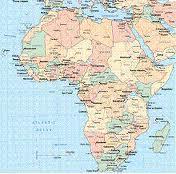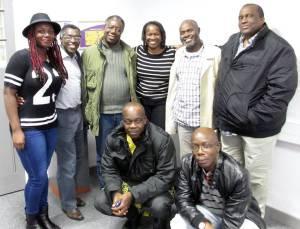
Africa
Malcolm Gladwell, in his bestseller The Tipping Point, talks of people called the connectors, those who, in different situations of adversity, particularly connect the dots, and make things happen.
In one example he refers to a group of American soldiers/ or militia men Paul Revere and William Dawes who, during the war of independence, on April 18, 1775 left their ranks at night to accomplish an ultimate mission.
They traveled from their position, tens of miles, to provide their colleagues on a different front of the battlefield with a crucial information their hierarchy had learnt from the British enemy.
This was of critical significance since it was going to change the course of the war at the advantage of the freedom fighters. History books rarely mention these heroes who through a surge of last sacrifice stamp their mark on events forever.
Yes the connectors had to go at all such length, to accept to give their remaining energies of the day, in order to make the big difference.
When the Burkinabe uprising occurred on October 31, 2014, a group of Africans in London had been gathering for a few weeks thinking on how to tackle the issue of foreign intervention in Africa in its complex and varied forms.
Coming together as Africans had been this time triggered by the abduction of approximately 250 school girls in Nigeria back in June 2014. We remember how this Boko Haram action further justified more desire of foreign intervention especially from US and UK into Nigerian security affairs.
The initiative is gradually growing in strength trying to involve more of those who are concerned by the negative impact that each undesired interference of foreigners has on African populations and their harmonious development.
As we observed and analysed the Burkinabe event, some African people in the diaspora thought of how best to relate to it. The idea of a Pan-African declaration of solidarity was brought up.
The statement was found to be the least that those particularly based in London could come up with. It points among other things at some concern about the Burkinabe military hijacking the people’s revolution and the necessity of vigilance to remain on track.
THE VICTORY BORN FROM THIS UPRISING BELONGS TO THE PEOPLE, AND THE TASK OF MANAGING THE TRANSITION FALLS BY RIGHT TO THE PEOPLE. IN NO CASE CAN IT BE CONFISCATED BY THE ARMY.
What also needs to be highlighted is what the rest of Africa, and Africans everywhere, should do to sustain progressive changes that continue to occur, ensuring they remain on the correct course leading to greater social justices for the masses of people.
In Paris, a number of African political parties from the opposition in Burundi, Gabon, Senegal, Central African Republic, Congo Brazzaville, Benin, Senegal, and Equatorial Guinea came together after the Burkinabe uprising. They made a declaration to leverage on what had just happened.
A Pan-Africanist gathering was planned for Friday 27/11/14 in the French capital. Another which this time is meant to bring together all Africans in France to come out and stand for a democratic Africa, exempt of dictators, was to be confirmed for 27/12/14.
It is clear that the events in Burkina Faso have invigorated more the spirit of democratic change than in recent years. Though Northern African popular uprisings of 2011 ignited the flame of a new dawn on the whole continent, they did not lighten up effectively.
More than a month after the Burkinabe uprising, unfortunately the number of disappointed people continues increasing by the day. It is an open secret that the military have now hijacked political power in that country: the prime minister is colonel Isaac Zida. Six of his twenty six members strong transitional government are soldiers.
For uninformed observers, the hijacking could not be understood without referring to certain facts: Zida is a soldier trained in US. Burkina Faso has good reserves of significant minerals that many multinationals are already exploiting. Over the years, the country has increasingly become the US/French hub to fight the so called international terrorism in Western Africa.
On the positive side of things, reactions to the Burkinabe uprising reported from other African countries, be it Benin, Gabon, Congo Brazzaville, Cameroon, Burundi, Democratic Republic of Congo, Togo, or even Rwanda, where there seemed or continue to be intentions to mimic Blaise Compaore, dictators are this time thinking seriously at their fate in case they try to change their constitutions.
That Washington, London, Paris, or Brussels claim that they don’t want any of the African dictators to change their constitutions, they are stating that, not necessarily in the interests of African populations.
This would not be the first time they would have followed the wind of time but pre-empted it in order to always preserve the status quo by preparing effectively for any change.
For African masses on the continent and in the diaspora, in order to take advantage of available opportunities for change, more than networking, or knowing what is happening in different places, will be needed.
Having the time and taking the right step to identify those paths that could have the greatest impact in the desired direction, and eventually change the course of the struggle will be critical.
The apparent disconnection among the French and Anglo-Saxon movements of the African diaspora, and even on the continent, would need to be rapidly resolved to harmonise their strategies of influencing positive change on the continent.
That would undoubtedly be where the role of the connectors could make the real difference and bring about the fundamental transformation we all strive for Africa.

Some of the African connectors who worked on the Pan-African declaration of support to the Burkinabe people. More and more connectors are required everywhere there are Africans, either on the continent or in the diaspora, to leverage positive events that are all the time occurring driving the continent in the right direction. Photo courtesy Amma Fosuah Poku.
